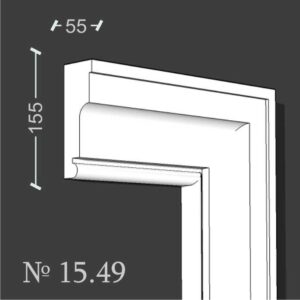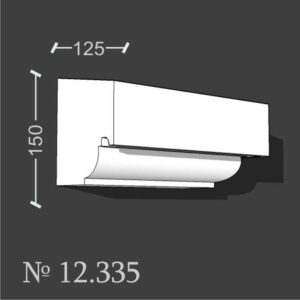Do you experience flickering lights in your home? Are you wondering if “can flickering lights cause a fire?”
Flickering lights, while captivating, often leave us wondering about their hidden messages. In this enlightening journey, we unveil the secrets behind those fleeting moments of illumination.
From loose connections to aging fixtures, we unravel the tales woven by flickers. Join us as we decode the language of electrical nuances and learn how simple steps can transform your space from a flickering enigma to a haven of steady brilliance. Welcome to the world where every flicker has a story to tell!
Understanding Flickering Lights
Before we dive into the potential fire hazard, let’s understand why lights flicker in the first place. Flickering lights can be caused by various factors, including:
Faulty Bulbs
At times, when you see your lights are flickering, it could be because of a problem with the light bulb itself. You know how a light bulb has a tiny, thin wire inside it? That wire is called a filament.
Now, if this filament is damaged or the bulb is getting old and worn out, the light can flicker on and off. It’s like when a toy starts acting funny because its batteries are running low – the flicker is a sign that the bulb might need to be replaced soon.
Loose Wiring
Imagine the wires that carry electricity to your lights are like the strings on a guitar. If these wires aren’t properly connected, it’s like the guitar strings are loose or not touching the right spots.
This can make the light go on and off quickly. That’s the flickering you see. It’s like when your TV signal gets weak, and the picture gets fuzzy or disappears.
Fixing this problem is important because if the wires don’t connect well, it can cause more serious troubles later on. Just like you’d tighten the strings on a guitar to make the music sound right, making sure the wires are properly connected helps the lights shine steadily.
Voltage Fluctuations
Think of the electricity coming to your home like water flowing through a pipe. Sometimes, the flow of water can become stronger or weaker. Similarly, the “flow” of electricity, called voltage, can change too.
When the voltage changes, it can make your lights brighter or dimmer for a short while. Imagine you’re using a water hose to fill a bucket, and someone turns on another faucet somewhere else – the water pressure might drop, and the flow could slow down a bit.
Now, this change in voltage can happen because of a few reasons. One reason is if there are problems with the big system that provides electricity to many houses, like a giant power hub.
Another reason could be when you’re using many electrical devices simultaneously, like turning on the air conditioner, microwave, and TV. It’s like asking for a lot of water from the hose at once, so the pressure might dip a little.
So, if you notice your lights getting brighter or dimmer sometimes, it’s usually because the “pressure” of electricity is changing. It’s not a big worry, but if it happens a lot, it’s good to check things out, just like you’d check for leaks if your water pressure changed often.
Addressing the Query: Can Flickering Lights Cause a Fire?
Now, let’s tackle the pressing question, “can flickering lights actually result in a fire?” In a direct sense, flickering lights themselves might not be an immediate cause of fires. However, they often serve as red flags, signaling underlying electrical irregularities that could potentially escalate into fire hazards if not remedied.
Preventive Measures
To ensure your safety and preempt possible hazards, consider adopting the following precautionary measures:
Consulting Electrical Professionals
If you observe persistent and unexplained instances of flickering lights, hiring an electrician can give you all of the help you need. Their expertise can facilitate the identification of electrical problems and their subsequent resolution. You can ask your friends and family for referrals or visit reliable sites like this homepage to learn more.
Balancing Circuit Loads
Mindfully managing the number of devices connected to a single circuit is crucial. It’s like ensuring there’s not too much traffic on one road so everyone can move smoothly.
Distributing the electrical load evenly across different circuits is like spreading out the cars on different roads, preventing congestion and ensuring a steady flow of electricity. By refraining from overloading circuits, you’re helping to create a balanced and efficient electrical setup that minimizes the chances of flickering lights and keeps everything working smoothly.
Upgrading Outmoded Wiring
Imagine your home’s electrical system as a network of pathways that carry electricity to different parts of your house, like roads that lead to different places. Now, these pathways are made up of wires, just like the roads are made of pavement. Over time, some of these wires can get old and worn out, like old roads with cracks or potholes.
When these wires get old, they might not work as well as they used to. They can have problems like unevenly delivering electricity or not handling the power load safely. This can lead to issues like flickering lights or even worse, it could be a safety risk.
So, contemplate upgrading to modern and safer wiring systems. This can help reduce flickering lights because the new wiring is better at delivering electricity consistently.
Embracing Regular Maintenance
Undertaking routine maintenance on your light fixtures and other electrical components is advisable. Tightening any loose bulbs, switches, or wiring can effectively curtail the occurrence of flickering.
Harnessing Voltage Stabilizers
The installation of voltage stabilizers can be a prudent move. These devices regulate voltage fluctuations, thereby minimizing the chances of flickering lights.
Shedding Light on Safety
Although cautiousness is always appropriate when dealing with flickering lights, they rarely are the direct cause of fires. By staying vigilant, addressing wiring issues promptly, and taking preventive measures, you can ensure the safety of your home.
If you feel the flickering lights present a danger, consider calling an electrician for help to remedy the situation. Now you know the answer to “can flickering lights cause a fire?”, remember, it’s always better to be cautious and proactive regarding electrical matters.
Curiosity sparked? Our blog is overflowing with captivating content. Explore the world of information with us!













